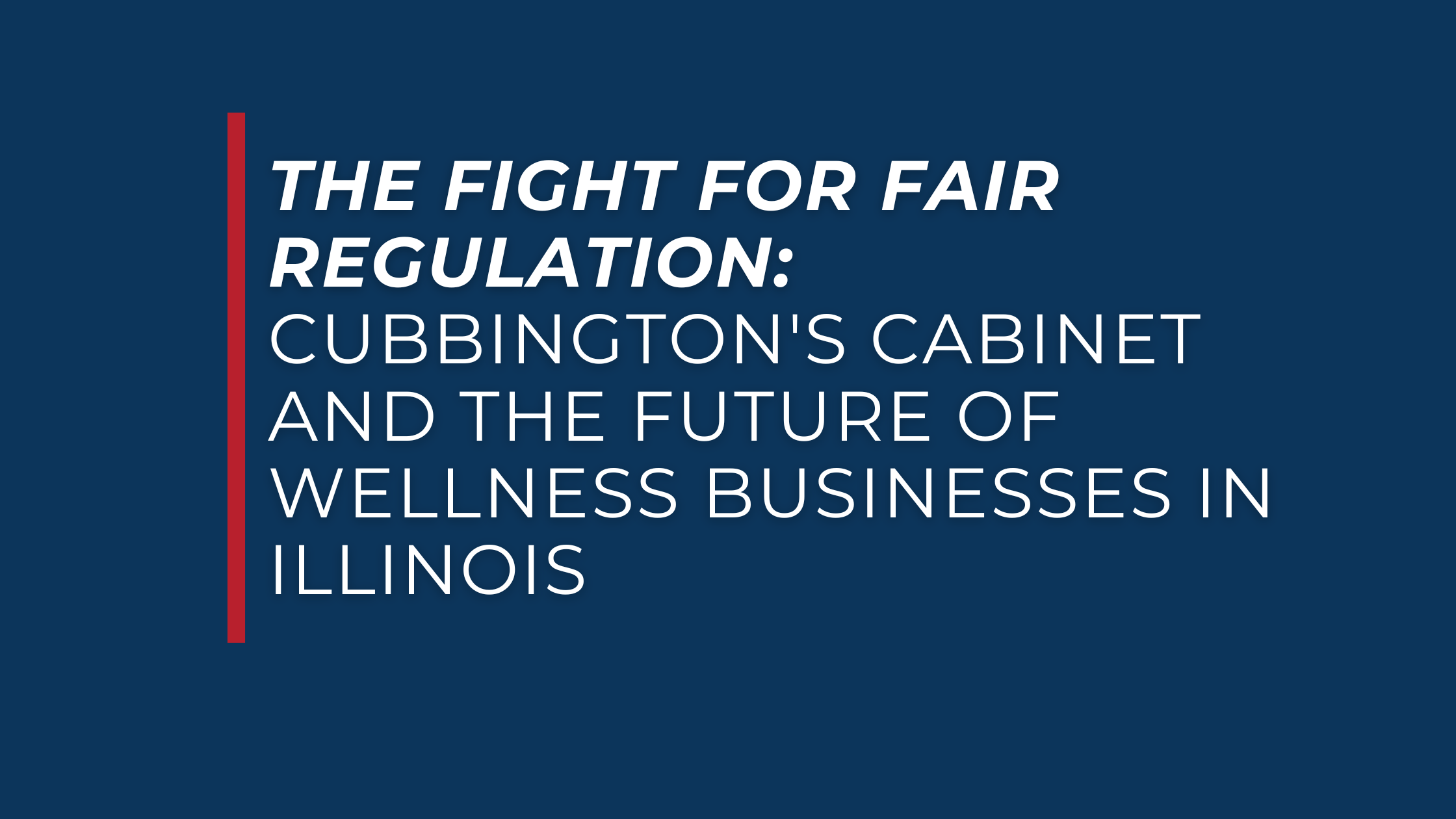
The Fight for Fair Regulation: Cubbington's Cabinet and the Future of Wellness Businesses in Illinois
Imagine building a business from scratch—a business centered around helping people and pets live healthier lives. Now imagine watching years of hard work and community trust teeter on the brink of collapse, all because of ill-conceived regulations. That’s the reality facing Dr. Jennifer Weiss, founder and CEO of Cubbington’s Cabinet, a small, mission-driven wellness retail business in Chicago.
Jennifer’s story is one that every Illinois resident, small business owner, and legislator should pay attention to. It’s a cautionary tale about the unintended consequences of overly restrictive legislation—specifically, HB4293 and its proposed amendments three and four—which threatens not only Jennifer’s livelihood but also consumer access to high-quality wellness products across the state that exist currently.
What Is HB4293, and Why Is It a Problem?
HB4293, and its amendments three and four, were introduced as an attempt to regulate the sale of hemp-derived and cannabidiol (CBD) products in Illinois. While the intention of ensuring public safety is commendable, the specific restrictions outlined in these amendments are so prohibitive that they would effectively outlaw the business operations of companies like Cubbington’s Cabinet.
Here’s what the amendments propose:
- THC Content Limits for Intermediate Products
The bill mandates that intermediate products (used during the production of hemp-derived products) must contain no more than 0.3% Delta-9 THC—an impossible standard. By definition, intermediates are concentrated forms of the plant that temporarily exceed this threshold before being processed into federally legal, final products.
- Ban on Chemical Conversion Processes
The legislation broadly defines and effectively bans anything considered “synthetic, artificial, or adulterated,” including conversions required to create active cannabinoids such as CBD. This means that even the safest, most widely available CBD products would be deemed illegal.
- Restrictive Serving and Package Size Limits
The bill limits Delta-9 THC content to 0.5mg per serving and 2mg per package. These restrictions would eliminate the vast majority of full-spectrum CBD products currently on the market, despite their widespread popularity and legality at both the state and federal levels.
The law’s unrealistic demands would spell disaster for wellness enterprises like Cubbington’s Cabinet, which operate transparently, ethically, and entirely within existing laws.
Jennifer Weiss and Cubbington’s Cabinet
Jennifer Weiss didn’t set out to disrupt an industry or engage in legislative battles. When she founded Cubbington’s Cabinet, her mission was simple yet impactful—to improve the quality of life for people and pets by offering plant-based, high-quality wellness products.
Her business has become a trusted source in her community, advocating for consumer education, thoughtful regulation, and industry transparency. Jennifer’s commitment to safety and quality is unwavering, which makes the sweeping restrictions of HB4293 all the more frustrating.
“This bill would immediately put me out of business,” Jennifer shared during her testimony to the Illinois Senate Executive Committee. “Not only would it shut down Cubbington’s Cabinet, but it would also halt consumer access to popular mainstream wellness products like CBD in Illinois.”
The Devastating Ripple Effect
If HB4293, amendments three and four, are passed as written, the consequences would extend far beyond Jennifer’s business. Here’s what’s at stake:
- Loss of Consumer Access
Wellness-minded individuals and families who rely on non-intoxicating CBD products for relaxation, pain relief, or general health maintenance would be left with few options. Most dispensaries prioritize high-THC cannabis products, leaving a gaping hole in the market for non-intoxicating alternatives.
- Harming Small Businesses
Illinois prides itself on nurturing small businesses, yet HB4293 would dismantle an entire sector of conscientious, mission-driven retailers. Hundreds of small businesses could be forced to close, putting thousands of Illinoisans out of work.
- Economic and Tax Revenue Loss
Restrictive laws could drive consumers to purchase CBD products from out-of-state companies, resulting in significant tax revenue losses for Illinois.
- Negative Impact on Public Safety
Shutting down-regulated, professional retailers may inadvertently push consumers toward unregulated, potentially unsafe products online or across state lines—achieving the opposite of the legislation’s intended goal.
Toward Thoughtful Regulation
Jennifer isn’t against regulation. On the contrary, she’s a passionate advocate for smart, balanced policies that prioritize public safety without stifling small businesses. She believes that regulations should focus on:
- Establishing quality, safety, and testing requirements
- Setting clear labeling standards
- Educating consumers about responsible product use
- Imposing age minimums to protect minors
Crucially, Jennifer envisions legislation that is built with input from diverse stakeholders, including small business owners, to create “common sense, consumer-minded, small business-friendly regulations.”
What You Can Do to Help
Jennifer’s story is a powerful example of what’s at stake when regulations overlook the realities faced by small businesses. Here are three ways you can take action:
- Contact Illinois Legislators
Urge the Illinois Senate Executive Committee to oppose HB4293, amendments three and four, in their current form. Advocate for thoughtful revisions that balance public safety with business sustainability. You can find contact information for committee members here.
- Share Jennifer’s Story
Raise awareness by sharing Jennifer’s testimony and the impact of these restrictive laws on social media with hashtags like #SupportSmallBusiness and #SaveCBD.
- Sign and Spread Petitions
Join petitions calling for inclusive, balanced legislation that supports small businesses while maintaining consumer safety. Encourage friends, family, and fellow citizens to do the same.
A Call for Balance
Illinois has the opportunity to lead the way in crafting intelligent, forward-thinking legislation that benefits residents, businesses, and public health alike. HB4293, as it stands, falls far short of that mark. Without revision, it risks wiping out a thriving wellness industry, silencing passionate entrepreneurs like Jennifer Weiss, and limiting consumer access to safe, beneficial products.
Jennifer’s fight is not just for her own business—it’s for every Illinois resident who values choice, safety, and the principles of fair enterprise. Together, we can advocate for measured, inclusive policies that uplift communities and allow small businesses like Cubbington’s Cabinet to continue making a meaningful impact.
Join the movement for responsible regulation today.



